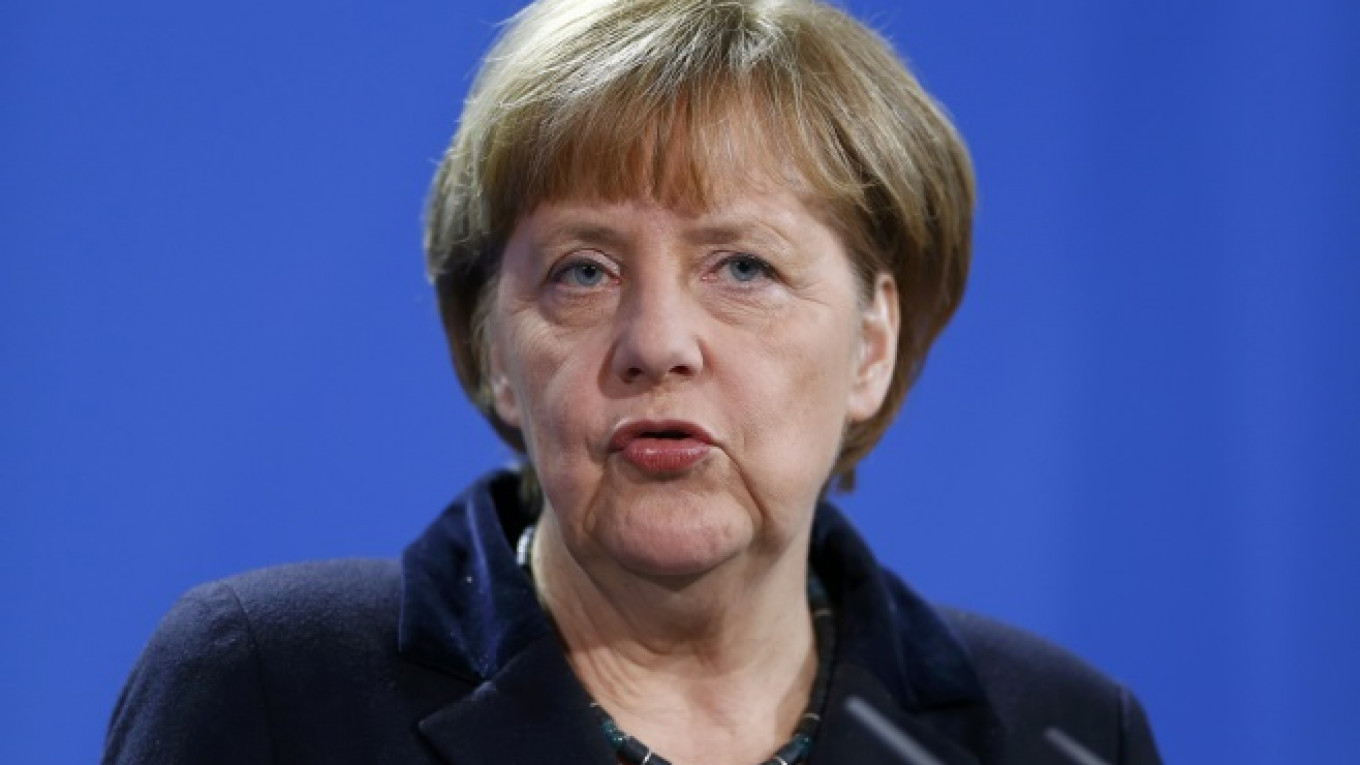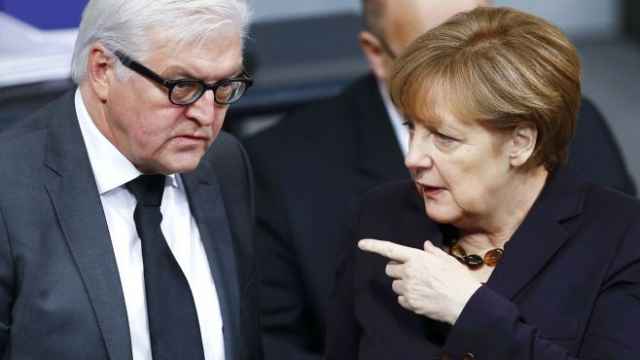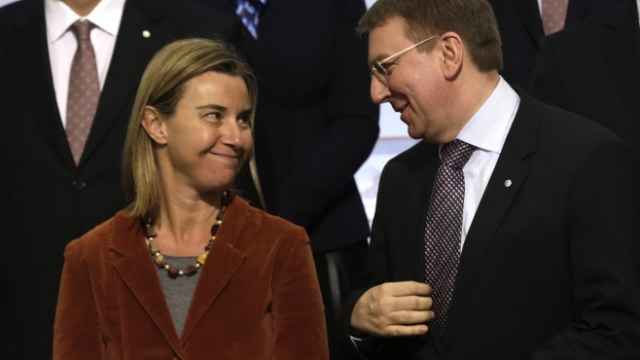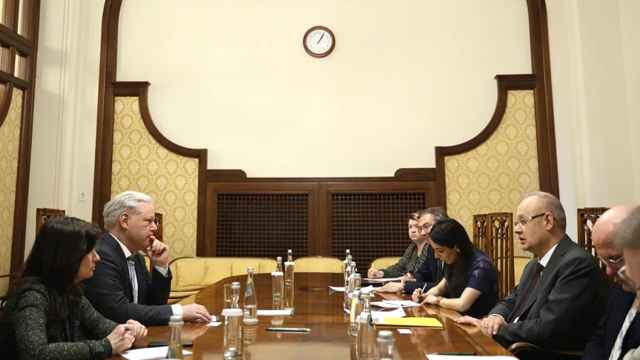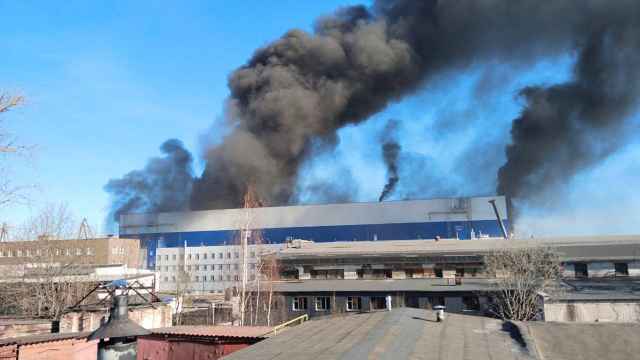BERLIN — German Chancellor Angela Merkel said on Thursday that Europe could not consider lifting sanctions against Russia until all elements of a 12-point peace agreement signed in September between Ukraine and pro-Russian rebels were fully implemented.
In her clearest comments yet on the sanctions issue, the German leader adopted a more hawkish stance than that set out by senior politicians from her coalition partner, the Social Democrats (SPD), and European leaders like French President Francois Hollande in recent days.
Worried about a deterioration of the Russian economy, they have suggested that progress on the so-called Minsk protocol agreed in September, rather than full implementation, would be sufficient to consider easing the sanctions.
Speaking at a news conference in Berlin with visiting Ukrainian Prime Minister Arseniy Yatsenyuk, Merkel said she had "little hope" that a first round of sanctions introduced in response to Russia's annexation of Crimea could be lifted.
And she placed a high bar for easing a second round of punitive EU measures tied to Russia's intervention in eastern Ukraine. Moscow denies backing the separatist rebels in the conflict, which has killed more than 4,700 people, despite what Ukraine and Western governments say is overwhelming evidence to the contrary.
"The entire Minsk agreement must be implemented before we can say these sanctions can be lifted," she said, specifically ruling out a step-by-step easing based on progress on the 12 points, which include a ceasefire, monitoring of the Ukraine-Russia border, security zones and the release of hostages.
Top SPD politicians have sounded a more dovish note in recent weeks, with Foreign Minister Frank-Walter Steinmeier expressing concern that Russia could be destabilized if EU sanctions were not eased.
In an interview with Reuters on Wednesday, senior SPD lawmaker Gernot Erler, the government's coordinator for relations with Russia, said Berlin should think about easing sanctions "if we see progress on the 12 points of the Minsk accord.”
France's Hollande told French radio on Monday: "I think the sanctions must stop now. They must be lifted if there is progress." EU foreign policy chief Federica Mogherini said on Wednesday there were "some limited" signs that Russia may be changing its approach.
But Merkel made clear that a meeting of leaders from Ukraine, Russia, France and Germany, which had been planned for mid-January in the Kazakh capital of Astana, would only take place if there was progress on the peace front in the coming days.
She also praised Yatsenyuk for his government's reform program, including the austerity budget pushed through in late December. The budget was a condition for the disbursement of cash under an International Monetary Fund aid package that totals $17 billion.
"The prime minister gave a very impressive report on the reforms planned in Ukraine," Merkel said. "It is ambitious, it is determined. And I believe it was a huge success to finalize a budget before Christmas that was anything but easy and that includes a number of new measures.”
A Message from The Moscow Times:
Dear readers,
We are facing unprecedented challenges. Russia's Prosecutor General's Office has designated The Moscow Times as an "undesirable" organization, criminalizing our work and putting our staff at risk of prosecution. This follows our earlier unjust labeling as a "foreign agent."
These actions are direct attempts to silence independent journalism in Russia. The authorities claim our work "discredits the decisions of the Russian leadership." We see things differently: we strive to provide accurate, unbiased reporting on Russia.
We, the journalists of The Moscow Times, refuse to be silenced. But to continue our work, we need your help.
Your support, no matter how small, makes a world of difference. If you can, please support us monthly starting from just $2. It's quick to set up, and every contribution makes a significant impact.
By supporting The Moscow Times, you're defending open, independent journalism in the face of repression. Thank you for standing with us.
Remind me later.


